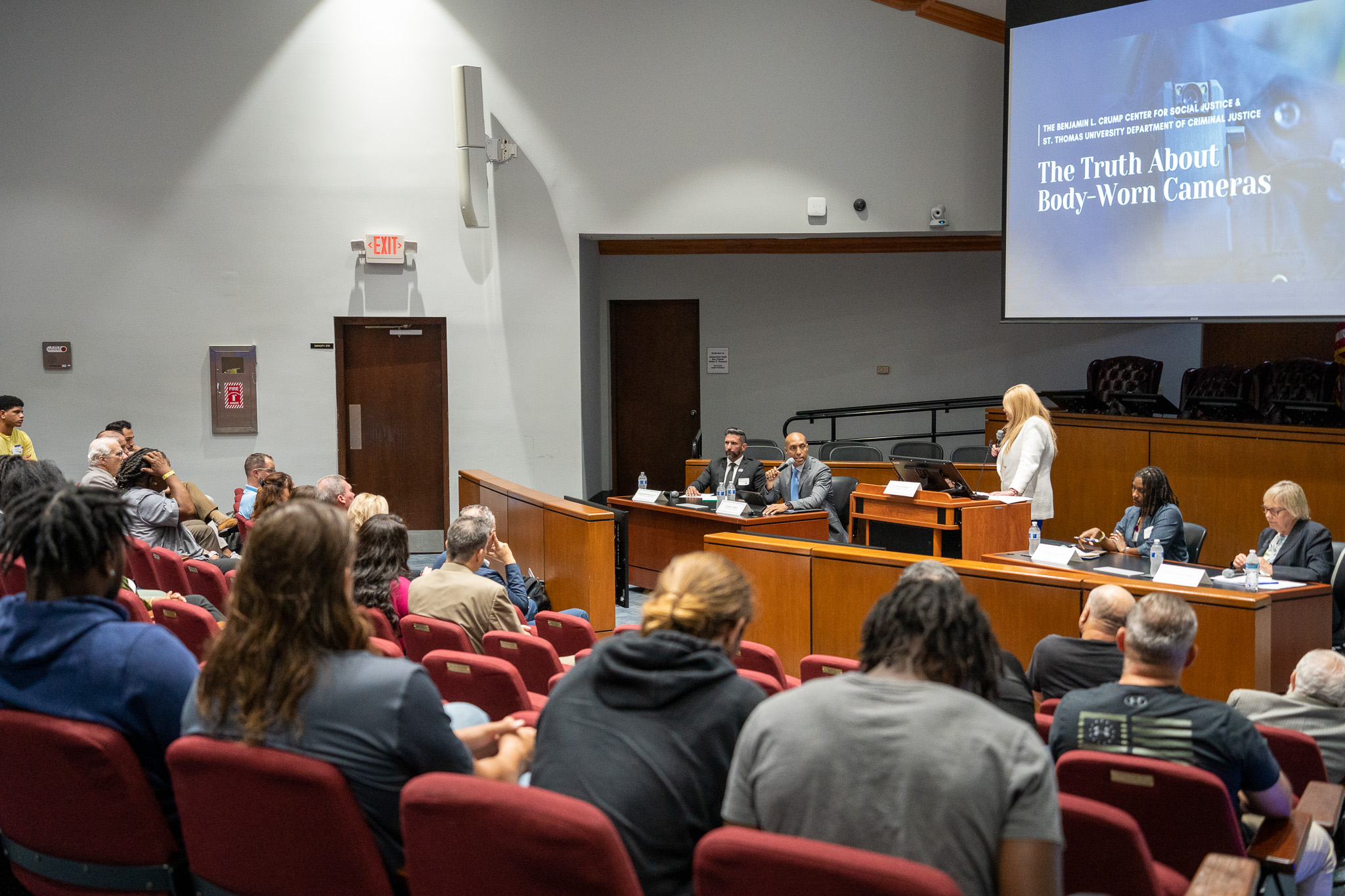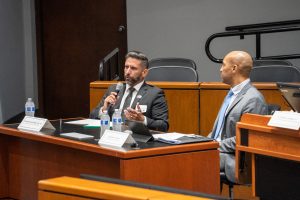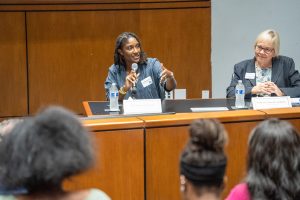
On Tuesday, November 15th, the Benjamin L. Crump Center for Social Justice and the St. Thomas University Department of Criminal Justice hosted an engaging panel conversation titled, “The Truth About Body-Worn Cameras.” Dr. Debbie Goodman, Director of the St. Thomas University Undergraduate Criminal Justice Program, moderated the panel discussion which explored the benefits and challenges of police body-worn cameras. The panel included Karhlton F. Moore, Director of the Bureau of Justice (BJA); Lieutenant Joel Bello, Esq. ’19 of the Miami-Dade Police Department and Adjunct Professor at St. Thomas Law; Dr. Shirley Plantin ‘99, ’01, Chief Executive Consultant of U-Turn Youth Consulting Firm; and Lenora Ledwon, J.D., Ph.D., Professor of Law at St. Thomas Law.
 The panel conversation opened with a welcome video message by Civil Rights Attorney Benjamin L. Crump, who strongly encouraged the audience to be engaged, educated, and empowered “so [that] we can go out and make a better world for all of our children.” He emphasized that “the crux of the matter is having transparency so [that] we can build trust not only in communities of color, but also trust with law enforcement communities… because [transparency] leads to truth, and truth leads to justice, and equal justice leads to trust.”
The panel conversation opened with a welcome video message by Civil Rights Attorney Benjamin L. Crump, who strongly encouraged the audience to be engaged, educated, and empowered “so [that] we can go out and make a better world for all of our children.” He emphasized that “the crux of the matter is having transparency so [that] we can build trust not only in communities of color, but also trust with law enforcement communities… because [transparency] leads to truth, and truth leads to justice, and equal justice leads to trust.”
During the conversation, panelists spoke on a number of issues and topics surrounding body-worn cameras including police and citizen accountability, community concerns and criticisms regarding body cams, utilizing body cam footage for police training purposes, the use of body cam video evidence in court, and their effectiveness in mitigating gun violence. One of the key takeaways from the discussion was the importance of building trust between law enforcement and communities through education, dialogue, engagement, and transparency.
 “Let’s start with transparency. Let’s start with being inclusive and let’s start with meeting people where they are. …If we really want to be transparent, [if] we really want to build trust between the community and law enforcement, we need to be honest that one device is [not] going to do it. We need to see people, we need to hear people, and we need to value people,” stated Dr. Shirley Plantin.
“Let’s start with transparency. Let’s start with being inclusive and let’s start with meeting people where they are. …If we really want to be transparent, [if] we really want to build trust between the community and law enforcement, we need to be honest that one device is [not] going to do it. We need to see people, we need to hear people, and we need to value people,” stated Dr. Shirley Plantin.
This is the mission of the Benjamin L. Crump Center for Social Justice at St. Thomas University College of Law which seeks to facilitate bridge-building among social justice engineers, civil rights activists, and the law enforcement community through active discourse and education.
To learn more about the Benjamin L. Crump Center for Social Justice and to support Attorney Crump’s vision, please visit: www.stu.edu/crump.

